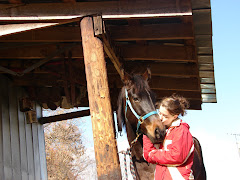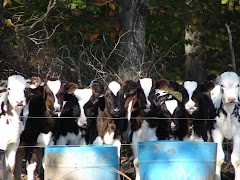As Shapiro mentioned violence is everywhere in this world including in schools, which is not what we want. School needs to be a safe place where a child can feel as if he/she can truly express their opinion and ask questions so that they comprehend lessons without fear. I think as a school it would be harder for one person to create this safe place with their students, but one can certainly create this atmosphere within their classroom. While becoming teachers I don’t think that prevention and awareness for violence is taught very well. I think violence should be discussed in schools, without over doing it. I believe it is the teacher’s responsibility to be aware of emergency response procedures for any incident, and to be able to detect warning signs in children. Shapiro stated that teachers are not taught how to do this, and I agree. He has a brief 7 step outline that teachers should be aware of before entering the classroom, so that their students aren’t as vulnerable. 1) Being aware that each human life as an infinite worth. 2) Connecting social injustice to violence 3) understanding our real differences 4) take what people say to heart (compassionate attentiveness) 5) learning to live with our differences 6) engages in meaningful dialogue. 7) Formulating a language of possibility.
This subject, especially after countless school shootings and violence, is very controversial. But my opinion is that yes violence should be taught and understood by all teachers before entering the classroom; and should be discussed with students as well, just not in as much depth. A movie I highly recommend on bullying and school violence for any teacher is “Bang! Bang! You’r Dead.”
In the section that Postman and Weingarther wrote I just wanted to make quick mention on the fact that they had some very thoughtful questions teachers should ask themselves on what one could and should put in his/her curriculum.
One other chapter I found interesting was Levine’s impassioned Teaching and Critical Thinking. I believe that teachers have to have passion for what they do. Because if you don’t show a love for learning then why should your student! He says passion in classroom creates strong feelings, expressions, and powerful discussions; which is what we want our kids to have. I like his quote “knowledge of self and knowledge of the world must go hand in hand.” So I think that passion for learning needs to be present in all teachers so that the students won’t be afraid to show their passions and really be able to find themselves.
Wednesday, January 30, 2008
Monday, January 28, 2008
What is the purpose of schooling?
First off I just wanted to say how much I enjoyed the way some of these chapters were written. The ones with the shorter bold titled sections with the bullets. Although it was still alot of information I felt like it flowed better. Hooks stated " I have been most ispired by those teachers who have had the courage to transgress those boundaries that would confine each pupil to a rote, assembly-line approuch."From what I took his response as I really liked it. I saw it that he was inspired by the teachers that didnt fit the avarage everyday teaching style. The teachers who allowed studnets to fell comfortable even when discussing and thinking about things that are outside their comfort zone, student and teacher. The teacher being able to admit that he/she can learn and take new ideas from their students.This allows everyone to get to know each other on a personal level rather than student/ teacher relationships. I think it is very important to know a child’s personality, this allows you to help figure out the best way for them to learn.
Dewey states that there is two sides to education, psychological and sociological. I agree that both are very important and are definitely present in school systems. But he later goes into how school is primarily a social institution, although I think the social aspect is vital to the learning process I would say the mental/ psychological part fits about 50/50. The last thing I wanted to mention was how he defines education as a continuing reconstruction of experiences. I really like how that is stated. I believe education is built upon and life and school experiences are a big part.
Dewey states that there is two sides to education, psychological and sociological. I agree that both are very important and are definitely present in school systems. But he later goes into how school is primarily a social institution, although I think the social aspect is vital to the learning process I would say the mental/ psychological part fits about 50/50. The last thing I wanted to mention was how he defines education as a continuing reconstruction of experiences. I really like how that is stated. I believe education is built upon and life and school experiences are a big part.
Monday, January 21, 2008
How do the historical aims of education influence our thinking and practice of schooling today?
There was a 19th century Persian philosopher who inspired the American system of teacher training. He introduced the compulsory schooling and encouraged the creation of lower class teachers. Its true that there wouldn't be schooling without teachers. So after reading Gatto's views I was curios why teachers are so under minded as a profession. Although there are some people who might not agree, teaching is not the most ideal and glamorous job. Even when I decided I wanted to be a teacher I had many people ask me "why?" as if I had just jumped into the worst occupation I could think of. Even though, like Gatto said, it is one of the closest watched occupations. with all the media and politics surrounding schools, you are constantly seeing things about teachers, curriculum's, or the school system as a whole. With all that coverage people obviously know the hard work and dedications school teachers put into their job, so why is not a valued occupation?
Another viewpoint that caught my attention was Spring's section on common schooling. Common Schooling is a school with the basis on all children will be educated. It was created around 1830-1840 with specific public policies. The father of common schooling was a man by the name of Horace Mann. I liked this way of schooling from the standpoint that all children get educated. This had to do wonders for the working class in the society. Just as in today's time knowledge is power. And with the opportunity for everyone to go to school, this made lower and middle class feel empowered that they can receive the same education. It reminds me of the today debates on inclusion. I feel this topic is a part of "all learners" as Springs mentions. One thing I did find interesting is that this type of schooling was originally based on common moral education form the bible. It also taught social ideology, which i think is a great thing to teach. I believe our school systems are way to based on memorization and definitions. We need to be promoting higher critical thinking in the classroom so our students can take real life situations and make sense of them. If the students had more guidance in morals and ethics I think that would benefit the student as well, especially in today's time were many families are tied up and to busy to slow down and teach the little lessons. But what this section did mention is that politics were kept out, which I find very fascinating since now and days it's totally opposite. In most of my classes politics is a huge debate and definitely touched upon in the classroom, where as religion is not acceptable to discuss and rarely even mentioned.
Another viewpoint that caught my attention was Spring's section on common schooling. Common Schooling is a school with the basis on all children will be educated. It was created around 1830-1840 with specific public policies. The father of common schooling was a man by the name of Horace Mann. I liked this way of schooling from the standpoint that all children get educated. This had to do wonders for the working class in the society. Just as in today's time knowledge is power. And with the opportunity for everyone to go to school, this made lower and middle class feel empowered that they can receive the same education. It reminds me of the today debates on inclusion. I feel this topic is a part of "all learners" as Springs mentions. One thing I did find interesting is that this type of schooling was originally based on common moral education form the bible. It also taught social ideology, which i think is a great thing to teach. I believe our school systems are way to based on memorization and definitions. We need to be promoting higher critical thinking in the classroom so our students can take real life situations and make sense of them. If the students had more guidance in morals and ethics I think that would benefit the student as well, especially in today's time were many families are tied up and to busy to slow down and teach the little lessons. But what this section did mention is that politics were kept out, which I find very fascinating since now and days it's totally opposite. In most of my classes politics is a huge debate and definitely touched upon in the classroom, where as religion is not acceptable to discuss and rarely even mentioned.
Subscribe to:
Comments (Atom)


